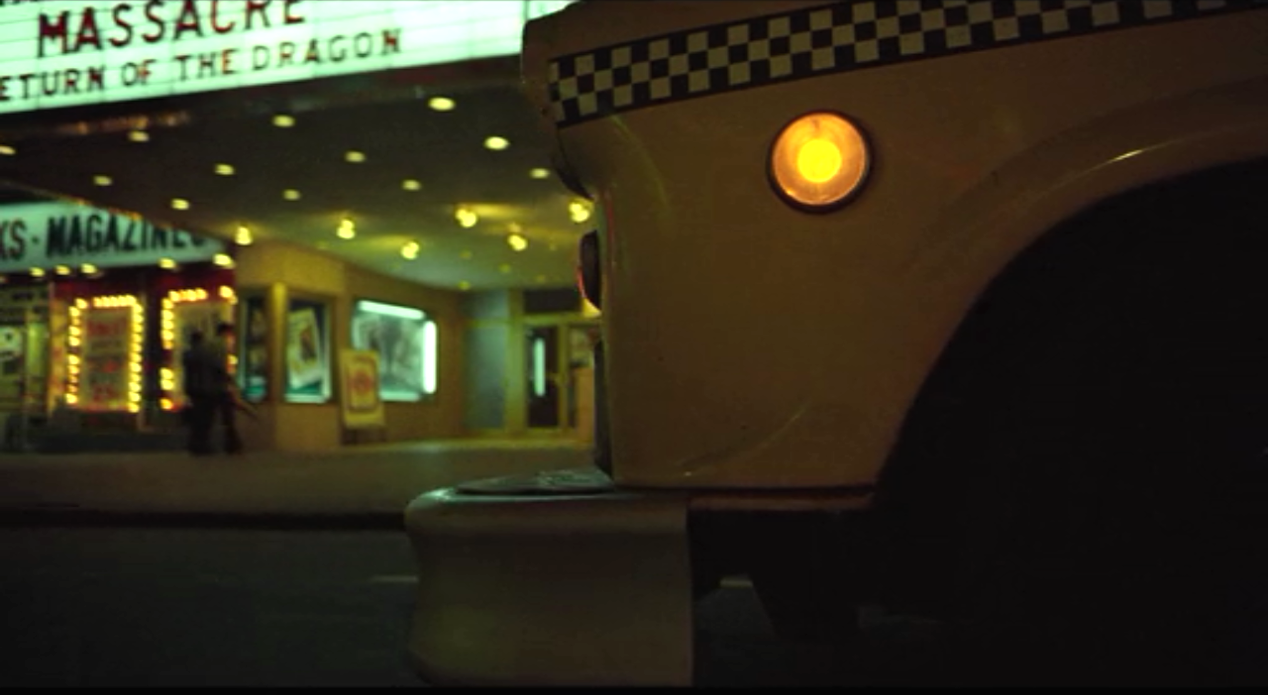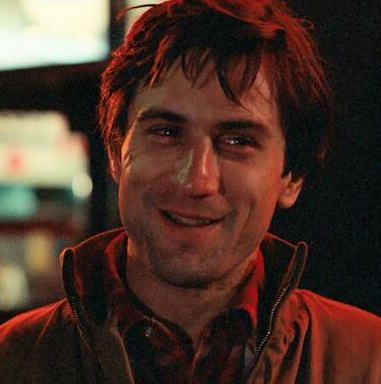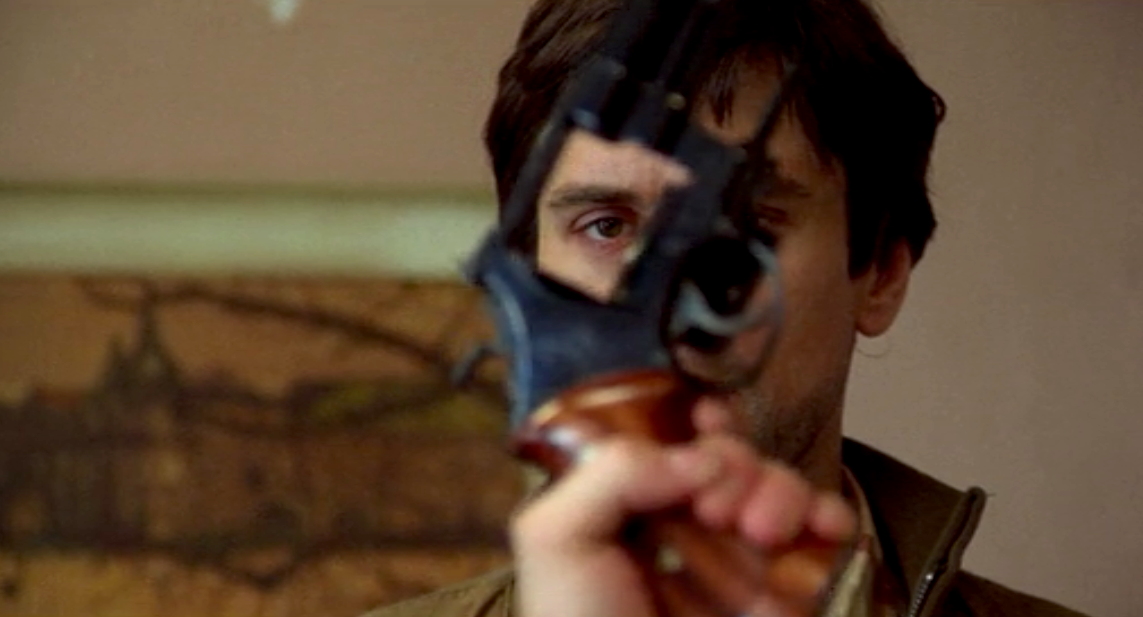Taxi Driver is about the movies. That's my thesis at least. Oh sure it's about a few other things, too. But consider this: as early as the very first shot of Travis Bickle's yellow cab on duty, it drives right across a movie theater marquee (showing The Texas Chainsaw Massacre) via our low angle view.
 Cinematography by Michael Chapman
Cinematography by Michael Chapman
Massacre? An overstatement of foreshadowing perhaps but we will get to the killings in two hours. On the other hand, since we're in Travis Bickle's headspace even more than we're in the cab, you could argue that the massacres start much much earlier. In one of Taxi Driver's most famous images, Travis, alone in a theater trains his finger pistol on porn actors on the screen and begins to fire away. It's a frighteningly short jump from finger guns to actual guns and we watch him training them on random civilians in the street from a window as well as on actors on the television set.
But what prompts the descent into violent fantasy/reality?
I'd argue that the key to understanding Taxi Driver, this reading at least, is Martin Scorsese's racist, misogynist, and altogether terrifying presence in the backseat. About halfway through the movie Scorsese's unnamed fare directs Travis to sit with the meter running outside a building and the camera drifts up, on Scorsese's orders, to frame, quite literally, the target of the director's violence in a window, his supposed wife in silhouette. The director is directing and storytelling within his own directed story.
 "I got some bad ideas in my head"The fare shares his violent fantasy of murdering the woman and her lover. From that moment on, Travis himself is caught up in his own violent fantasies. Is Taxi Driver suggesting that violence or evil is contagious and transferring it directly from the auteur to his muse? Or is Scorsese's fare the driver's own fantasy, a convenient projection in the rearview mirror. Many movie fans take the events of Taxi Driver literally, but I'm not so sure it's happening as we see it. Just as Travis sees it. Consider the epilogue in which he is regarded as a hero and even the girl who rejected him reevaluates. The last thing we see in the movie appears to be Travis looking at himself in the rear view mirror in a collision of quick cuts, jittery camera, and reflected street lights.
"I got some bad ideas in my head"The fare shares his violent fantasy of murdering the woman and her lover. From that moment on, Travis himself is caught up in his own violent fantasies. Is Taxi Driver suggesting that violence or evil is contagious and transferring it directly from the auteur to his muse? Or is Scorsese's fare the driver's own fantasy, a convenient projection in the rearview mirror. Many movie fans take the events of Taxi Driver literally, but I'm not so sure it's happening as we see it. Just as Travis sees it. Consider the epilogue in which he is regarded as a hero and even the girl who rejected him reevaluates. The last thing we see in the movie appears to be Travis looking at himself in the rear view mirror in a collision of quick cuts, jittery camera, and reflected street lights.
At one point in that disturbing director/muse fare/driver scene, the camera drifts from Scorsese's shadowed face to Travis's. As it lingers on Travis's face we're hearing Scorsese's voice "You think I'm sick don't you." In the very next scene Travis expresses concern to a fellow driver that he has bad thoughts in his head. Was this one of them -- Travis in conversation with himself?
 best shot
best shot
Like Patrick Bateman decades later, maybe Travis 'doesn't exist' or doesn't want to. His co-worker tells him, "You become the thing you do." And the movie seems to agree.
Travis reduces his humanity throughout Taxi Driver, even physically, as he slims down to better hide how many weapons he's now carrying. Soon he is only violent fantasy. And then violent reality. This, my choice, for best shot tells us as much. Travis, whatever he was, is less and less that. Travis is a weapon. In a viewfinder. Scorsese is framing him for us but Travis Bickle is always staring right back in one of the most unsettling films of the 70s.
TONIGHT AT 11 - THE FULL BEST SHOT INDEX